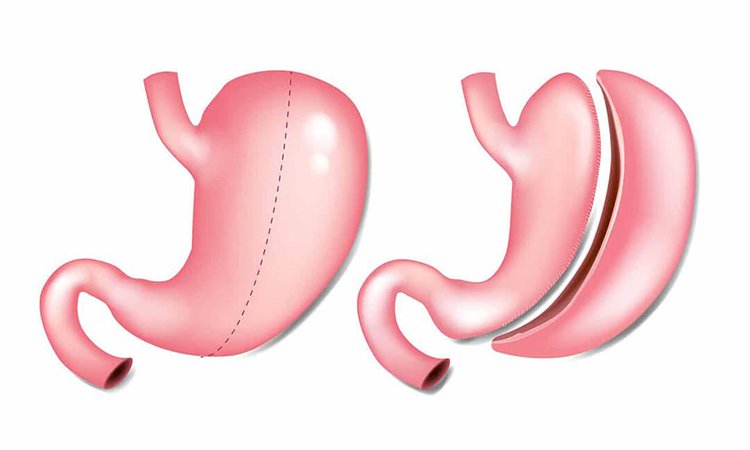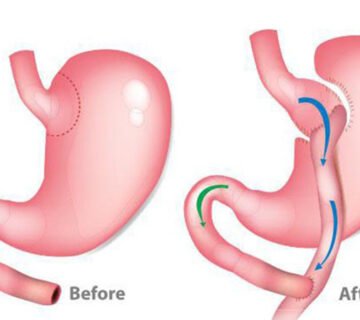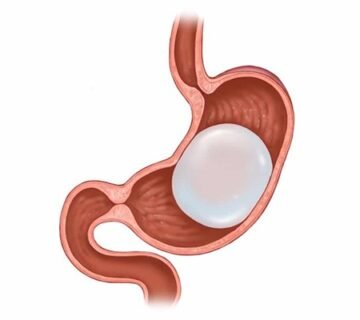What is gastric sleeve surgery?
Gastric sleeve surgery is a type of weight-loss surgery. Weight-loss surgery is also called bariatric surgery. This surgery also known as sleeve gastrectomy or vertical sleeve gastrectomy (VSG). Gastric sleeve surgery restricts your food intake, which leads to weight loss. You may lose from 50 to 90 pounds.
It’s done as a laparoscopic surgery, with small incisions in the upper abdomen. Most of the left part of the stomach is removed. The remaining stomach is then a narrow tube called a sleeve. Food empties out of the bottom of the stomach into the small intestine the same way that it did before surgery. The small intestine is not operated on or changed. After the surgery, less food will make you full when eating.
Why might I need gastric sleeve surgery?
Gastric sleeve surgery is used to treat severe obesity. It’s advised for people who have tried other weight loss methods without long-term success. Your doctor may advise gastric sleeve surgery if you are severely obese with a body mass index (BMI) over 40. Your doctor may also advise it if you have a BMI between 35 and 40 and a health condition such as sleep apnea, high blood pressure, heart disease, or type 2 diabetes.
What are the risks of gastric sleeve surgery?
Bleeding, infection, and blood clots in your legs are possible side effects that may occur after any surgery. General anesthesia may also cause breathing problems or other reactions.
Over time, you may also have some trouble absorbing certain nutrients. Or you may develop a narrowing (stricture) in your stomach sleeve. Some people may have heartburn or reflux after the surgery. If you already have moderate to severe reflux, a gastric sleeve could make that worse. You may want to consider a gastric bypass surgery instead. That type of surgery can stop reflux and heartburn.
You may have other risks based on your health. Make sure to talk with your healthcare team about any concerns before the surgery.
How do I get ready for gastric sleeve surgery?
Your healthcare team will need to make sure that gastric sleeve surgery is a good option for you. Weight-loss surgery isn’t advised for people who abuse medicines or alcohol, or who are not able to commit to a lifelong change in diet and exercise habits.
Before having surgery, you’ll need to enroll in a bariatric surgery education program. This will help you get ready for surgery, and life after surgery. You’ll have nutritional counseling. And you may have a psychological evaluation. You’ll also need physical exams and tests. You will need blood tests. You may have imaging studies of your stomach, or have an upper endoscopy.
If you smoke, you will need to stop several months before surgery. Your surgeon may ask you to lose some weight before surgery. This will help make your liver smaller, and make surgery safer. You’ll need to stop taking aspirin, ibuprofen, and other blood-thinning medicines in the days before your surgery. You shouldn’t eat or drink anything after midnight before surgery.
What happens during gastric sleeve surgery?
You will have general anesthesia for your surgery. This will cause you to sleep through the surgery. Your surgeon will use laparoscopy. He or she will make several small cuts (incisions) in your upper abdomen. The surgeon will then insert a laparoscope and put small surgery tools into these incisions.
The anesthesiologist will then pass a sizing tube through your mouth down into the stomach. The surgeon will then use a laparoscopic stapler to divide the stomach, leaving a narrowed vertical sleeve. The part of the stomach that was removed is then taken out of the abdomen through an incision. Your surgeon may then test for any leaks in the sleeve using a dye study or an upper endoscopy.






No comment